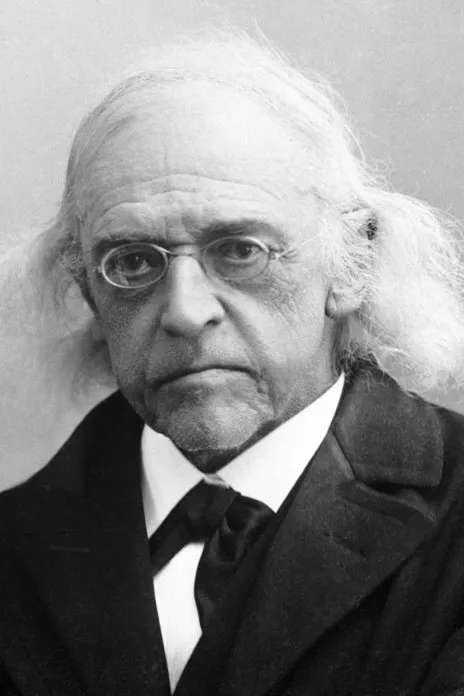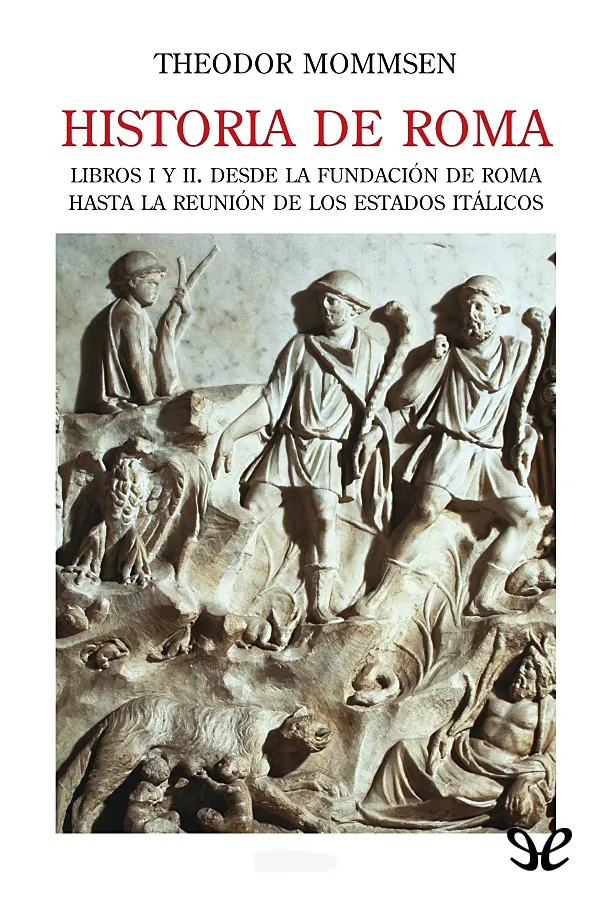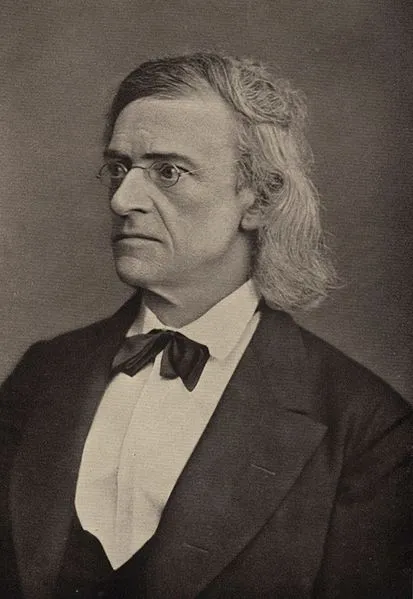Hace un tiempo empecé a escribir una serie sobre los premios nobel de Literatura. Esta es la segunda entrada de dicha serie, si quieren leer la primera, pueden verlo aquí.
El premio nobel de literatura para el año 1902 fue para Theodor Mommsen, cuyo nombre completo era Christian Matthias Theodor Mommsen, nació el 30 de noviembre de 1807 en Garding, una región que para aquel tiempo pertenecía a Dinamarca; y murió el 1 de noviembre de 1903.
Su padre, quien era un pastor protestante, lo introdujo en la literatura clásica. Gracias a ello adquirió pasión hacia todo lo relacionado con la cultura grecorromana.
Luego de culminar sus estudios elementales, Mommsen ingresó a la Universidad de Kiel para estudiar Derecho. Pero a Mommsen no lo conocemos solo como jurista, también como historiador, pues a partir de 1.854 comienza una obra monumental: Corpus Inscriptionum Latinarum. Llegó a transcribir unos 120.000 epígrafes.
De todas sus obras, la más destacada es Historia de Roma, una obra compuesta por 5 tomos, donde Mommsen despliega toda su erudición e investigación sobre el antiguo imperio romano, desde sus orígenes hasta la época de los emperadores.
Se trata de una obra dinámica en donde Mommsen hace algunos paralelismos entre la situación de la antigua ciudad con la situación actual de la Alemania de su época, pero también ofrece un relato sobrio sobre la expansión del imperio romano; en este sentido, el historiador se despoja de todo misticismo y hace caso omiso de las leyendas y los mitos fundacionales para explorar la verdad y las razones de la expansión del imperio romano, pero no solo eso, sino también cómo funcionaba, cuál era su situación política, social y religiosa incluso antes de convertirse en imperio.
Aunque este no fue su único trabajo, pues llegó a escribir un Manual de antigüedades romanas en 7 volúmenes, entre otros títulos -Su obra en realidad es extensa- se puede decir que es el más conocido y el más leído.
También se puede decir que fue un hombre polémico y de ideas firmes, pues debido a sus ideas políticas llegó a perder su cargo como profesor en la universidad de Leipzig en 1848; y más adelante, incluso fue arrestado por oponerse a Bismarck , arresto que no duró mucho tiempo, ya que para ese entonces, el catedrático ya tenía una reputación bien labrada en el mundo académico y político.
En 1902 recibe el premio Nobel de Literatura, en su segunda edición. Como ya dijimos, Sully Prudhomme fue el primero en recibir el prestigioso premio.
Las razones por las que la Academia le otorgó el premio se debieron por ser "el gran maestro vivo del arte de la escritura histórica, con especial referencia a su monumental trabajo, Historia de Roma".
A continuación, presentaré algunos fragmentos de los libros I y II de Historia de roma:
El lenguaje es, en efecto, la imagen verdadera y el fiel intérprete de los progresos realizados en tales épocas; es el depositario de los secretos de las revoluciones verificadas en las artes y en las costumbres; es en fin, el archivo perenne a donde irá el porvenir a buscar la ciencia, cuando se haya desvanecido por completo la tradición directa de los pasados tiempos (p.47).
Mientras en Grecia se une más a la persona de los dioses, predomina en Roma la idea de la divinidad. En Grecia se mueve la imaginación con entera libertad; en Roma se detiene ante un tipo obligado (p.61)
Las artes son la expresión de la vida de un pueblo, no solamente en sus trabajos serios, sino también cuando se refleja en los juegos y en las diversiones públicas (p.61)
En ciertas oportunidades, Mommsen hace comparaciones entre la antigua civilización romana con aspectos modernos, o usa conceptos modernos para tratar de explicar algunos aspectos que tienen que ver con la organización política de la antigua Roma, como en el siguiente caso:
El pueblo romano fue el único entre todos los pueblos civilizados de la antigüedad que supo conquistar la unidad nacional con un gobierno fundado en el poder popular, y mediante esta unidad, y pasando sobre las ruinas del edificio helénico, pudo llegar a la dominación mundial (p.63, las cursivas son mías).
El carácter reflexivo se nota en el siguiente extracto:
Las tradiciones que hasta nosotros han llegado con sus nombres de pueblos desfigurados y con sus leyendas confusas se parecen a esas hojas secas de las que nos cuesta trabajo afirmar que han estado algún día verdes (...) Preguntemos mejor cuáles fueron las instituciones prácticas de los italianos en materia de derecho, qué ideal se manifiesta en su religión, cuál fue su economía doméstica y agrícola, de dónde procede su escritura, y cuáles han sido, en fin, los diversos elementos de su civilización (p.173).
La obra de Mommsen causó, en su momento, fascinación por la forma en la que el filólogo, jurista e historiador refleja los inicios de la gloria del antiguo imperio. Si bien es cierto que ahora muchos de los aspectos teóricos y metodológicos, así como algunas de sus hipótesis y afirmaciones no siguen vigentes, sí lo es el espíritu con el que Mommsen abarcó su obra, y por eso sigue siendo lectura recomendada para conocer los inicios de una de las grandes potencias de todos los tiempos, y también la forma en que se moldeó el pensamiento en el siglo XIX.
Referencias
https://es.wikipedia.org/wiki/Theodor_Mommsen
https://www.biografiasyvidas.com/biografia/m/mommsen.htm
Theodor Mommsen, el mundo romano y sus proyecciones: A propósito del centenario de su muerte: https://www.scielo.cl/scielo.php?script=sci_arttext&pid=S0718-04622005000200007#n2
https://www.nobelprize.org/prizes/literature/1902/summary/
Discurso de entrega del premio: https://www.nobelprize.org/prizes/literature/1902/ceremony-speech/
Nobel prize of Literature: Theodor Mommsen and the roman world
A while ago I started to write a series on the Nobel Prizes in Literature. This is the second entry in that series, if you want to read the first one, you can see it here.
The Nobel Prize for literature for the year 1902 was for Theodor Mommsen, whose full name was Christian Matthias Theodor Mommsen, was born on November 30, 1807 in Garding, a region which at that time belonged to Denmark; and died on November 1, 1903.
His father, who was a Protestant priest, introduced him to classical literature. Thanks to this he acquired a passion for everything related to Greco-Roman culture.
After completing his elementary studies, Mommsen enrolled at the University of Kiel to study law. But Mommsen is not only known as a jurist, but also as a historian. In 1854 he began a monumental work: Corpus Inscriptionum Latinarum. He transcribed some 120,000 epigraphs.
Of all his works, the most outstanding is History of Rome, a work composed of 5 volumes, where Mommsen displays all his erudition and research on the ancient Roman Empire, from its origins to the time of the emperors.
It is a dynamic work in which Mommsen makes some parallels between the situation of the ancient city with the current situation of the Germany of his time, but also offers a sober account of the expansion of the Roman Empire; in this sense, the historian strips himself of all mysticism and ignores the legends and founding myths to explore the truth and the reasons for the expansion of the Roman Empire, but not only that, but also how it worked, what was its political, social and religious situation even before becoming an empire.
Although this was not his only work, as he went on to write a Manual of Roman Antiquities in 7 volumes, among other titles -His work is actually extensive- it can be said to be the best known and most widely read.
It can also be said that he was a controversial and strong-minded man, because because of his political ideas he lost his position as professor at the University of Leipzig in 1848; and later, he was even arrested for opposing Bismarck, an arrest that did not last long, since by then, the professor already had a well-established reputation in the academic and political world.
In 1902 he received the Nobel Prize for Literature, in its second edition. As already mentioned, Sully Prudhomme was the first to receive the prestigious prize.
The Academy's reasons for awarding him the prize were due to his being "the great living master of the art of historical writing, with special reference to his monumental work, History of Rome".
I will now present some fragments from books I and II of History of Rome:
Language is, in fact, the true image and the faithful interpreter of the progress made in such epochs; it is the depository of the secrets of the revolutions verified in the arts and in customs; it is, finally, the perennial archive where the future will go to look for science, when the direct tradition of past times has completely vanished (p.47).
While in Greece the person of the gods is more united, in Rome the idea of the divinity predominates. In Greece the imagination moves with complete freedom; in Rome it stops before an obligatory type (p.61).
The arts are the expression of the life of a people, not only in its serious works, but also when it is reflected in games and public entertainments (p.61).
On certain occasions, Mommsen makes comparisons between ancient Roman civilization with modern aspects, or uses modern concepts to try to explain some aspects that have to do with the political organization of ancient Rome, as in the following case:
The Roman people were the only one among all the civilized peoples of antiquity who knew how to conquer national unity with a government founded on popular power, and by means of this unity, and passing over the ruins of the Hellenic building, were able to reach world domination (p.63, italics mine).
The reflective character is noticeable in the following excerpt:
The traditions which have come down to us with their disfigured village names and confused legends resemble those dry leaves of which we find it hard to affirm that they have ever been green (...) Let us ask better what were the practical institutions of the Italians in matters of law, what ideal is manifested in their religion, what was their domestic and agricultural economy, whence their writing, and what have been, in short, the various elements of their civilization (p.173).
Mommsen's work caused, at the time, fascination for the way in which the philologist, jurist and historian reflects the beginnings of the glory of the ancient empire. Although it is true that nowadays many of the theoretical and methodological aspects, as well as some of his hypotheses and assertions are no longer valid, the spirit in which Mommsen approached his work is still valid, and that is why it is still recommended reading to learn about the beginnings of one of the great powers of all times, and also the way in which thought was shaped in the 19th century.
References
https://es.wikipedia.org/wiki/Theodor_Mommsen
https://www.biografiasyvidas.com/biografia/m/mommsen.htm
Theodor Mommsen, el mundo romano y sus proyecciones: A propósito del centenario de su muerte: https://www.scielo.cl/scielo.php?script=sci_arttext&pid=S0718-04622005000200007#n2
https://www.nobelprize.org/prizes/literature/1902/summary/
Award ceremony speech: https://www.nobelprize.org/prizes/literature/1902/ceremony-speech/



